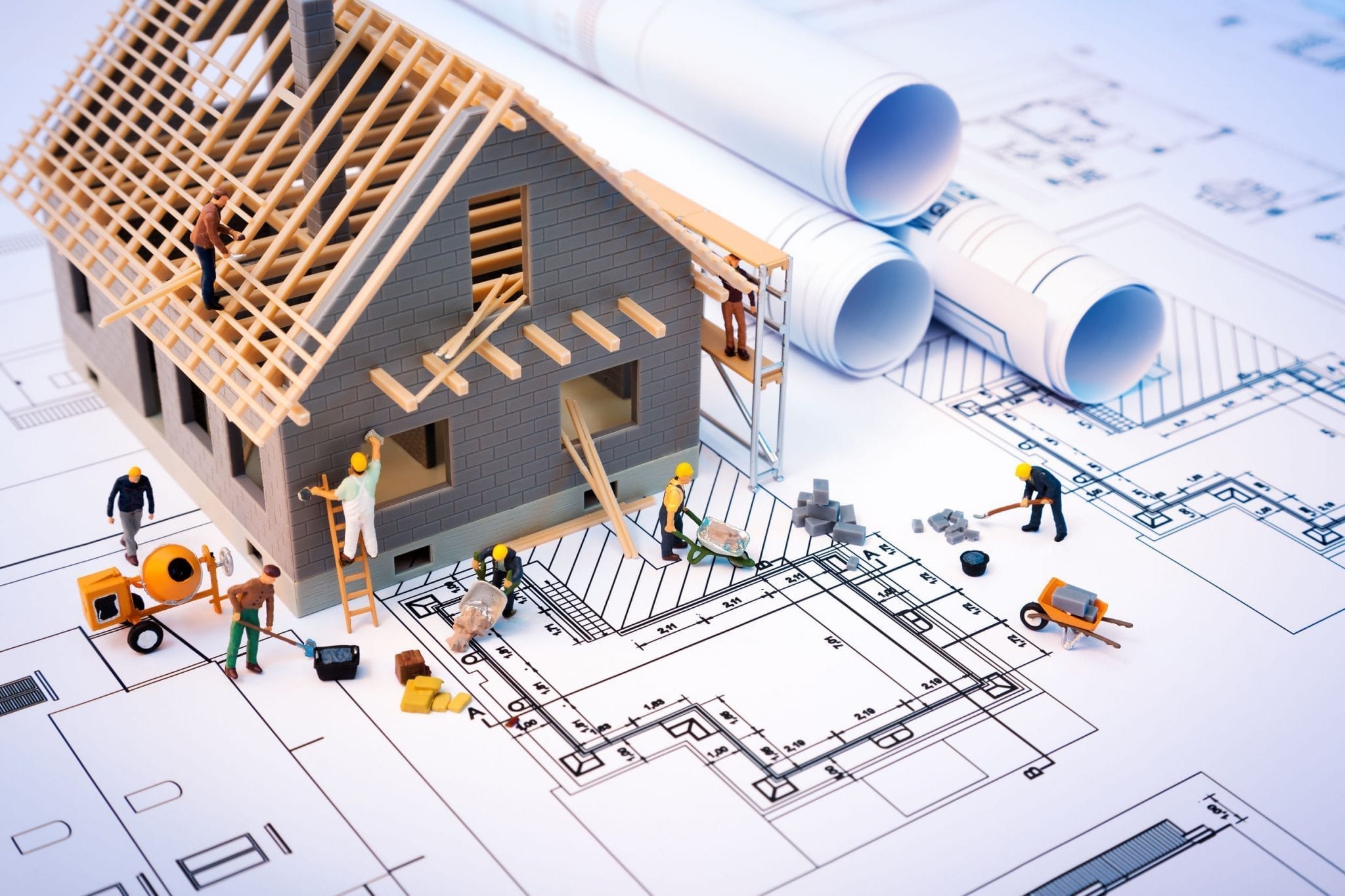What is Real Estate Development?
Real estate development is the process of acquiring land or property, designing and building upon it, and eventually selling or leasing the developed space. It involves a combination of creativity, construction, financial analysis, and market awareness. Real estate development can range from small residential projects to large-scale commercial ventures, and it plays a significant role in urban growth and economic development.
Definition of Real Estate Development
At its core, real estate development refers to turning raw land or underdeveloped properties into functional spaces. It includes everything from site selection, financing, and design to construction, marketing, and leasing/selling. Developers are the primary stakeholders who bring these projects to life, often collaborating with architects, builders, and contractors.
The Scope of Real Estate Development
real estateomni.com covers a wide array of projects:
- Residential Developments: Including single-family homes, condominiums, apartments, etc.
- Commercial Developments: Office buildings, retail centers, and hotels.
- Mixed-Use Developments: A combination of residential, commercial, and industrial spaces in one location.
- Industrial Developments: Warehouses, factories, and distribution centers.
The Stages of Real Estate Development
Real estate development is a step-by-step process, and each phase is crucial to the success of the project.
Site Acquisition and Land Selection
The first step involves identifying and acquiring the right piece of land for development. Developers conduct thorough research on the land’s potential, looking at factors such as location, zoning regulations, and access to infrastructure. Site acquisition can be a lengthy process that includes negotiations and legal considerations.
Planning and Design
Once the land is secured, developers work with architects and designers to create detailed plans for the development. This stage involves everything from sketching blueprints to determining the layout of the property, amenities, and exterior aesthetics. Zoning laws, environmental regulations, and building codes also come into play at this stage.
Financing the Project
Financing is a critical part of the development process. Developers typically seek funding from a variety of sources, including banks, investors, or private lenders. The financial plan needs to account for the cost of land, construction, permits, and other expenses. A well-structured financial model will ensure the project’s profitability and long-term success.
Construction
With the design finalized and financing in place, construction can begin. This phase involves hiring contractors, managing schedules, and ensuring that the building process adheres to the design and budget. Construction is a time-consuming phase that can take months or even years, depending on the size and complexity of the development.
Marketing and Leasing/Selling
Once the project is nearing completion, it’s time to market and lease or sell the developed properties. Marketing strategies may include advertisements, open houses, and virtual tours. Depending on the type of development, some properties may be sold immediately, while others may be leased to tenants.
Key Players in Real Estate Development
Several professionals and organizations play key roles in the development process:
Developers
Developers are the driving force behind any real estate project. They are responsible for financing, managing, and overseeing every stage of development. Developers are usually experienced in project management and have a network of industry professionals to help bring their projects to life.
Architects and Designers
Architects and designers create the vision for the development. They work closely with developers to ensure that the design meets the needs of the target market while complying with building codes and regulations.
Contractors and Builders
Contractors and builders are responsible for constructing the project. They hire and manage laborers, procure materials, and ensure that the construction process adheres to the design plans and timelines.
Real Estate Agents
Real estate agents assist in marketing the property once it’s completed. They may handle sales, leasing, or property management, depending on the type of development.
Types of Real Estate Developments
There are different types of real estate developments, each catering to a specific market need.
Residential Development
Residential developments focus on creating living spaces such as single-family homes, apartments, or townhouses. These developments are designed to provide safe, comfortable, and accessible homes for people of all income levels.
Commercial Development
Commercial developments are aimed at businesses and typically include office buildings, shopping centers, or restaurants. These projects require attention to the needs of the businesses that will occupy the spaces, including location, parking, and infrastructure.
Industrial Development
Industrial developments include factories, warehouses, distribution centers, and other types of property used for manufacturing, storage, or distribution. These properties tend to be located in areas with easy access to major roads and transportation hubs.
Mixed-Use Development
Mixed-use developments combine different types of properties—residential, commercial, and sometimes industrial—in one location. These developments are ideal for urban areas where space is limited, and developers want to maximize land use.
The Financial Side of Real Estate Development
Real estate development is a capital-intensive business. Developers must secure funding, mitigate risks, and ensure profitability.
Sources of Funding
Developers may finance projects through various sources, including:
- Bank loans
- Private investors
- Equity financing
- Real estate investment trusts (REITs)
Risk Management in Development
Every development project carries risks, including economic downturns, changes in market demand, and construction delays. Developers use strategies like insurance, contingency planning, and market analysis to manage risks.
Profitability and Return on Investment (ROI)
Developers calculate ROI to assess whether a project is financially viable. Profitability depends on the project’s market demand, cost of construction, and the price at which the property is sold or leased.
Challenges in Real Estate Development
Real estate development is full of challenges that can make or break a project.
Zoning and Regulations
Zoning laws dictate how land can be used, and developers must ensure their plans align with these regulations. Navigating local zoning ordinances, permits, and environmental restrictions can be a complex and time-consuming process.
Market Risk and Economic Factors
Market risk is one of the biggest challenges developers face. Economic shifts, such as recessions or fluctuations in interest rates, can impact the demand for properties. Developers must stay informed about market trends and adjust their strategies accordingly.
Environmental Considerations
Sustainability and environmental regulations are increasingly important in real estate development. Developers must consider energy efficiency, environmental impact, and green building certifications to appeal to eco-conscious buyers and comply with legal standards.
The Role of Technology in Real Estate Development
Technology is transforming the real estate development industry, bringing new tools and innovations that make the process more efficient and sustainable.
PropTech and Innovation
PropTech refers to technology used to enhance real estate operations. From AI-driven property management tools to virtual reality property tours, PropTech is making it easier for developers to design, market, and manage properties.
Sustainability in Development
Sustainability is a key focus for many real estate developers. Incorporating eco-friendly materials, renewable energy sources, and green building practices not only helps the environment but also attracts buyers and tenants who prioritize sustainability.
How to Get Started in Real Estate Development
If you’re interested in getting started in real estate development, here’s how to break into the industry:
Education and Training
Real estate development requires a solid understanding of business, finance, construction, and law. Many developers hold degrees in real estate, business administration, or construction management.
Finding Opportunities
The best opportunities often come from market research, networking, and staying informed about trends in real estate. Developers often find potential sites for development through auctions, brokers, or word-of-mouth.
Building a Network
Success in real estate development depends heavily on building a strong network of professionals, including contractors, architects, real estate agents, and investors.
Future Trends in Real Estate Development
The real estate industry is constantly evolving. Here are some key trends shaping the future:
Sustainability and Green Building
With growing environmental concerns, sustainability is becoming a major priority. Future developments will likely focus on eco-friendly designs, energy-efficient systems, and low-impact materials.
Urbanization and Smart Cities
As cities continue to grow, developers will focus on creating smart cities with integrated technologies to enhance living conditions, reduce traffic, and improve sustainability.
The Impact of Remote Work on Development
With remote work on the rise, developers may increasingly focus on mixed-use developments that blend workspaces, residential areas, and leisure facilities to accommodate the changing needs of workers.
Conclusion
Real estate development is an exciting, dynamic field that combines creativity, business acumen, and technical skills. By understanding the stages of development, key players, types of projects, and financial considerations, developers can successfully bring their visions to life. Whether you’re an aspiring developer or an investor looking to dive into the market, this guide has provided you with the essential knowledge to get started.



